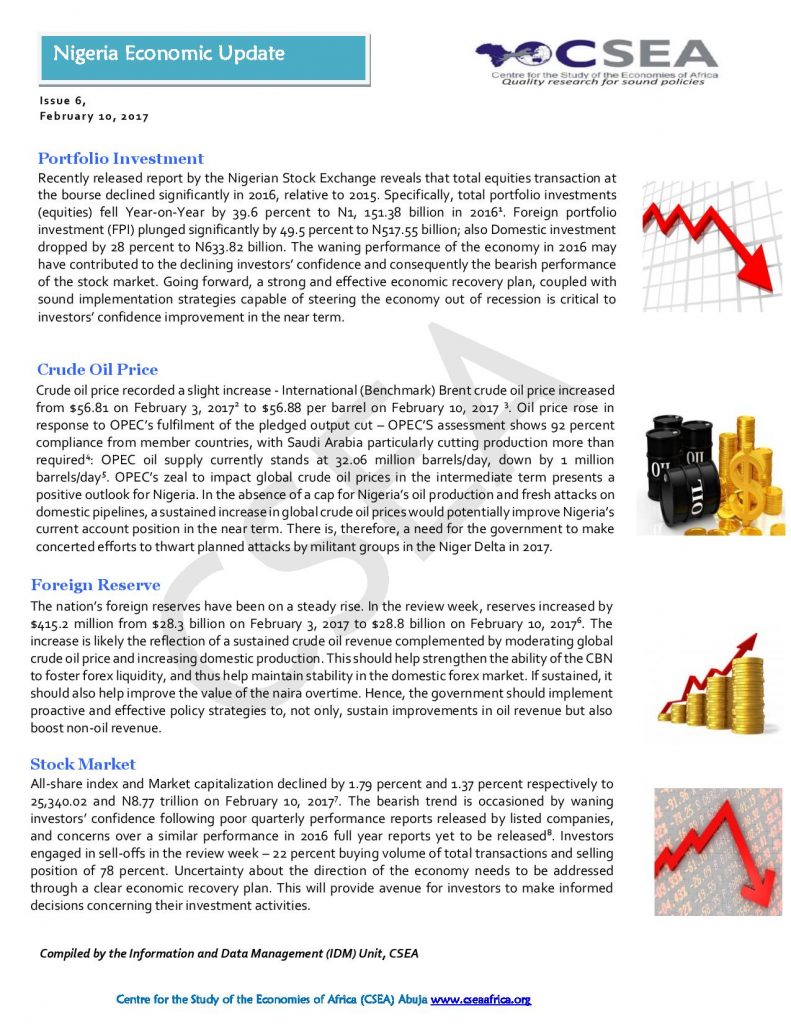Macroeconomic Report & Economic Updates

March 1, 2017
Nigeria Economic Update (Issue 6)
The
nations foreign reserves have been on a steady rise. In the review week,
reserves increased by $415.2 million from $28.3 billion on February 3, 2017 to
$28.8 billion on February 10, 2017. The increase is likely the
reflection of a sustained crude oil revenue complemented by moderating global
crude oil price and increasing domestic production. This should help strengthen
the ability of the CBN to foster forex liquidity, and thus help maintain
stability in the domestic forex market. If sustained, it should also help
improve the value of the naira overtime. Hence, the government should implement
proactive and effective policy strategies to, not only, sustain improvements in
oil revenue but also boost non-oil revenue.
